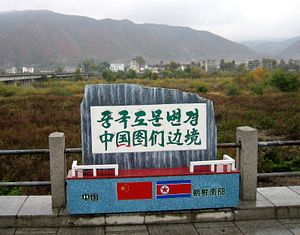The Cold War-style assassination of Kim Jong-un’s exiled half-brother, who had reportedly been living under Chinese protection in Macau, is likely to inflame existing tensions between Beijing and its ally Pyongyang, experts told The Diplomat.
China reportedly viewed Kim Jong-nam, who shared a father with the North Korean dictator, as a potential replacement for the current leader, who has tested Beijing’s patience with repeated nuclear and missile tests and by executing his reform-minded uncle Jang Song-thaek, who had close relations with the county. In an interview in 2012, Yoji Gomi, a Japanese journalist who extensively interviewed the estranged Kim, said that Beijing viewed him as a “political card” for the future.
As the first-born son of late dictator Kim Jong-il, Kim was once assumed to be the heir to the dictatorship but later fell out of favor, and in recent years he denied having any interest in power. After years of living outside North Korea, he was killed in an apparent poison attack at Kuala Lumpur airport in Malaysia on Monday.
Nam Change-hee, an international relations professor at Inha University near Seoul, said Kim’s assassination was “another slap on the face of Beijing,” leaving it with the competing options of punishing its ally or accommodating the slight.
“The policy I expect Beijing will take is a combination of the two, meaning sending another warning signal by reducing aid temporarily but simultaneously trying to maintain communication with Pyongyang as long as Kim Jong-un does not directly damage China’s security interests,” he said.
“We need to be reminded that Beijing needs to focus on domestic agenda and also other foreign policy problems like the Senkaku and South China Sea issues.”
Michael Madden, the founder of North Korea Leadership Watch, said the killing came at an especially inopportune moment as the countries appeared to be trying to mend fences.
“Jong-nam’s demise occurred at the same time as the Democratic People’s Republic of Korea [North Korea] and People’s Republic of China were shoring up their ties,” Madden said. “They had been relatively distant from one another the last three to four years — even prior to Mr. Jang’s execution — under Kim Jong-un. During the last few months there was an uptick in their conducting some public interactions and events.”
Madden said, however, that China may feel constrained in pushing back against its neighbor.
“I do not think the PRC will react too strongly because that would betray the value which some in China’s intelligence and diplomatic communities held Jong-nam,” he said. “ It may well serve as a test of China’s tolerance on the recent public renewal of DPRK-PRC ties.”
Robert Kelly, a political science professor at Pusan National University, said the fact that Beijing ultimately proved unable to unwilling to protect such a “useful wedge against Kim Jong-un” hinted at as-yet unknown machinations behind the scenes.
“Where was his operational security?” he said. “Does that mean China has given up on threatening or leveraging Kim Jong-un? That China let go such a useful asset is telling, but we don’t know what it means yet.”
































